Market research is a critical component of any successful business strategy. It helps organizations understand their customers, competitors, and industry trends, enabling them to make informed decisions that drive growth and profitability. In today's data-driven world, the sheer volume of information available can be overwhelming. That's where artificial intelligence (AI) comes in. AI tools offer powerful analytics capabilities that can help market researchers extract insights from vast amounts of data quickly and accurately.
In this blog, we'll explore some of the best AI tools for market research. We'll cover a range of solutions, including sentiment analysis, predictive modeling, natural language processing, and image recognition. By the end of this guide, you'll have a better understanding of how AI can help you gain a competitive edge by providing deeper insights into your target audience, emerging trends, and competitors. So, whether you're a seasoned market research professional or just getting started, read on to discover how AI can take your research to the next level.
IBM Watson Studio

IBM Watson Studio is a cloud-based platform designed for data scientists and developers to collaborate and build AI models. It offers a comprehensive set of tools to prepare, analyze, and model data, making it easier to deploy AI models and solutions. IBM Watson Studio also provides a range of pre-built models, including natural language processing (NLP), computer vision, and speech-to-text. With its intuitive interface and built-in automation, data scientists can easily build and train models without needing to write complex code. Additionally, IBM Watson Studio allows for integration with other IBM cloud services, making it a powerful tool for organizations looking to leverage AI and machine learning.
Pros
Cons
Overall Rank
Microsoft Azure Machine Learning Studio

Microsoft Azure Machine Learning Studio is a cloud-based platform that enables users to create, deploy, and manage machine learning models. With a user-friendly interface and drag-and-drop functionalities, it allows users to build models quickly and efficiently without requiring a deep understanding of programming or complex algorithms. Azure Machine Learning Studio provides a range of features such as data preparation, model training, and deployment options, making it a comprehensive solution for building and deploying machine learning models.
Pros
Cons
Overall Rank
Google Cloud AutoML
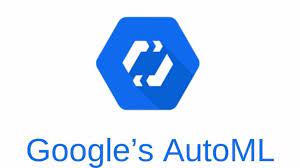
Google Cloud AutoML is an innovative machine learning tool that simplifies the process of creating custom machine learning models. It offers a user-friendly interface that allows users to easily upload their datasets, choose the type of model they want to build, and train it using Google's state-of-the-art machine learning algorithms. Google Cloud AutoML is designed to make machine learning more accessible to a wider audience, especially those who may not have extensive experience in programming or data science. With AutoML, businesses and individuals can leverage the power of machine learning to make data-driven decisions and improve their products or services.
Pros
Cons
Overall Rank
Alteryx

Alteryx is a powerful data analytics platform that enables businesses to blend, analyze, and visualize data from multiple sources. With its intuitive drag-and-drop interface, Alteryx makes it easy for both technical and non-technical users to perform complex data analytics tasks. Whether it's data preparation, predictive modeling, or spatial analytics, Alteryx provides a comprehensive suite of tools that can help businesses make data-driven decisions with confidence. Additionally, Alteryx provides an extensive library of pre-built workflows and connectors to popular data sources, allowing users to quickly and easily integrate data from various sources.
Pros
Cons
Overall Rank
SAS Enterprise Miner
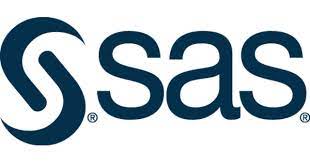
SAS Enterprise Miner is a powerful data mining software that enables organizations to analyze vast amounts of data and discover valuable insights. It provides an intuitive graphical interface that allows users to build predictive models without the need for programming expertise. The software also includes a wide range of advanced analytical techniques, including decision trees, regression analysis, and neural networks, to help organizations understand complex relationships between variables and make informed business decisions. With its easy-to-use interface and comprehensive set of features, SAS Enterprise Miner is an excellent tool for data analysts, business analysts, and data scientists alike.
Pros
Cons
Overall Rank
RapidMiner

RapidMiner is a data science platform that provides a wide range of tools for data exploration, modeling, and deployment. It offers an intuitive and user-friendly interface that allows users to build and deploy predictive models without the need for extensive coding knowledge. RapidMiner also supports a wide range of data formats, including Excel, CSV, and SQL, making it easy to import data from various sources. Additionally, it comes with a vast library of machine learning algorithms and techniques, allowing users to choose the best models for their data. With its drag-and-drop interface and automated workflows, RapidMiner streamlines the entire data science process, from data preparation to model deployment.
Pros
Cons
Overall Rank
DataRobot
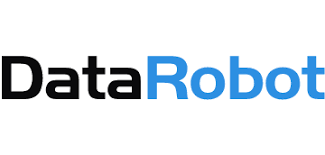
DataRobot is a leading automated machine learning (AutoML) platform that enables businesses to build and deploy accurate predictive models quickly and easily. With a user-friendly interface, users can upload data, select a target variable, and let the platform automatically generate and evaluate machine learning models, providing users with the best-performing model. DataRobot offers a wide range of machine learning algorithms and techniques to choose from, allowing businesses to solve complex problems across various industries. The platform also offers powerful visualizations and explainability tools to help users understand the predictions and decisions made by the models.
Pros
Cons
Overall Rank
KNIME

KNIME (Konstanz Information Miner) is an open-source data analytics platform that allows users to perform advanced data exploration, manipulation, and modeling through a drag-and-drop interface. It offers a wide range of pre-built nodes and integrations with various data sources and tools, making it an efficient solution for data-driven workflows. Additionally, KNIME provides users with the ability to create custom nodes using a variety of programming languages, including Java, Python, and R. This feature allows users to extend the platform's functionality and integrate their own algorithms and models into their workflows. Overall, KNIME is a versatile tool that can be used for various data analytics tasks, from basic data preparation to machine learning and predictive modeling.
Pros
Cons
Overall Rank
H2O.ai
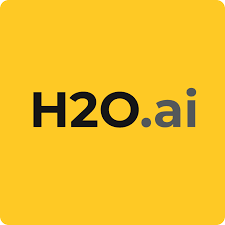
H2O.ai is a software company that specializes in the development and implementation of cutting-edge artificial intelligence and machine learning technologies. H2O.ai's flagship product, H2O, is an open-source machine learning platform that allows organizations to build and deploy models quickly and easily. The platform offers a range of tools for data preparation, model building, and deployment, making it a comprehensive solution for organizations looking to leverage AI and ML for their business needs. H2O.ai is a leader in the AI and ML space, with customers including Capital One, Progressive, and Wells Fargo.
Pros
Cons
Overall Rank
Cloudera Data Science Workbench
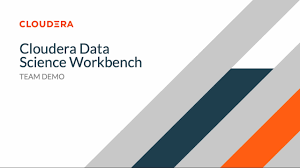
Cloudera Data Science Workbench is a cloud-native platform designed to enable data scientists to build, train, and deploy machine learning models at scale. With Cloudera Data Science Workbench, data scientists can leverage popular tools such as R, Python, and Scala to access and analyze large datasets stored in Hadoop or the cloud. The platform also provides a collaborative environment where data scientists can share code, insights, and results with their team members, making it easier to work together on projects and streamline the development process.
Pros
Cons
Overall Rank
Databricks
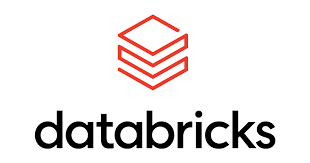
Databricks is a cloud-based data engineering platform that offers a collaborative environment for data scientists, engineers, and analysts to build, manage and deploy data-driven applications. Its Unified Analytics Platform is built on Apache Spark, providing a unified approach to data processing and machine learning tasks. Databricks' platform offers a user-friendly interface for data exploration, data visualization, and collaborative coding that enables teams to work together on data projects and deliver results faster. The platform also provides powerful security and governance features, making it easy to comply with data privacy and security regulations.
Pros
Cons
Overall Rank
TIBCO Spotfire

TIBCO Spotfire is a powerful data visualization and business intelligence software that allows users to easily analyze complex data and uncover insights. With its user-friendly interface and advanced analytics capabilities, Spotfire is an excellent tool for businesses looking to streamline their data analysis processes and make data-driven decisions. Spotfire's features include interactive dashboards, data visualization tools, and predictive analytics capabilities that allow users to quickly identify patterns and trends in their data. Additionally, Spotfire offers advanced analytics capabilities such as machine learning and AI-powered data preparation, making it a comprehensive solution for businesses of all sizes.
Pros
Cons
Overall Rank
Tableau

Tableau is a powerful data visualization tool that allows users to easily analyze and understand their data. With a drag-and-drop interface and a wide range of visualization options, users can quickly create interactive dashboards and reports that make it easy to spot trends, identify outliers, and share insights with others. Tableau also offers robust data blending capabilities, allowing users to combine data from multiple sources and create a unified view of their business. Its flexibility and ease of use make it a popular choice for businesses of all sizes, from startups to enterprise-level organizations.
Pros
Cons
Overall Rank
QlikView

QlikView is a business intelligence tool that allows users to explore data and create visualizations for effective decision-making. With its intuitive interface and powerful data analysis capabilities, QlikView enables users to easily analyze large amounts of complex data and identify patterns and insights that may not be immediately apparent. The software offers a range of features including data modeling, data visualization, and collaboration, making it a popular choice for businesses of all sizes. QlikView also offers mobile support, allowing users to access data and insights from anywhere at any time, making it a highly versatile and convenient tool for business professionals.
Pros
Cons
Overall Rank
Splunk
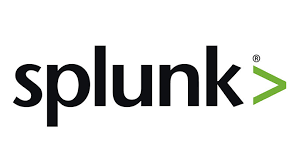
Splunk is a software platform that enables organizations to search, analyze, and visualize their machine-generated data in real-time. It helps businesses make sense of the vast amounts of data generated by their systems and applications, enabling them to gain insights into their operations, customer behavior, security threats, and more. With Splunk, organizations can monitor and troubleshoot their IT infrastructure, identify and resolve issues before they impact customers, and even predict future trends. Its powerful analytics capabilities, coupled with its easy-to-use interface, make it a popular choice for businesses of all sizes across various industries.
Pros
Cons
Overall Rank
Power BI

Power BI is a business intelligence tool developed by Microsoft that allows users to connect to various data sources, transform and visualize data, and share insights across their organization. With its intuitive interface, powerful data modeling capabilities, and advanced analytics features, Power BI empowers businesses to make data-driven decisions and gain valuable insights into their operations. Its seamless integration with other Microsoft products such as Excel, Azure, and Teams makes it a versatile tool for organizations of all sizes. Additionally, Power BI offers a range of customizable dashboards and reports that can be accessed from anywhere, making it easy for users to stay up-to-date on their data.
Pros
Cons
Overall Rank
Amazon SageMaker
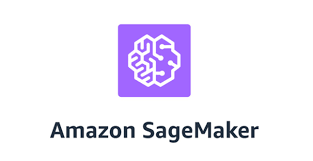
Amazon SageMaker is a machine learning platform offered by Amazon Web Services (AWS) that simplifies the process of building, training, and deploying machine learning models at scale. With SageMaker, data scientists and developers can easily create custom machine learning models using pre-built algorithms or their own algorithms, and then deploy them into production with just a few clicks. SageMaker also provides a wide range of built-in tools for data preprocessing, model optimization, and model tuning, making it an end-to-end solution for machine learning workflows. Additionally, SageMaker enables developers to use popular frameworks such as TensorFlow, PyTorch, and MXNet to build their models, giving them flexibility and choice in their development process.
Pros
Cons
Overall Rank
Ayasdi

Ayasdi is a machine intelligence platform that uses topological data analysis to solve complex business problems. The platform uses advanced algorithms to analyze large and complex datasets, identify patterns, and gain insights that can help organizations make informed decisions. Ayasdi is designed to be highly customizable, enabling organizations to tailor its features to meet their specific needs. The platform is used in various industries, including healthcare, finance, and government. Ayasdi's approach to data analysis is unique and has been recognized as one of the most innovative technologies in the market.
Pros
Cons
Overall Rank
ThoughtSpot

ThoughtSpot is an AI-driven analytics platform that helps organizations to transform their data into insights. It allows users to search and analyze their data quickly and easily using natural language queries and a user-friendly interface. The platform also provides powerful analytics capabilities, including advanced calculations, charts, and graphs, allowing users to discover hidden patterns and insights in their data. With its in-memory architecture and scalable distributed system, ThoughtSpot can handle large volumes of data in real-time, making it ideal for businesses of all sizes. Whether you're a business analyst, data scientist, or executive, ThoughtSpot can help you make data-driven decisions and achieve your business objectives.
Pros
Cons
Overall Rank
Yellowfin

Yellowfin is a business intelligence (BI) and analytics platform designed to help businesses make informed decisions based on data insights. With its intuitive drag-and-drop interface and extensive range of features, Yellowfin allows users to easily create interactive dashboards, reports, and visualizations. Yellowfin's advanced analytics capabilities also enable users to perform complex data analysis, predictive modeling, and machine learning tasks. One of the key strengths of Yellowfin is its ability to integrate with a wide range of data sources, including cloud-based applications, databases, and spreadsheets. This makes it a versatile tool for businesses of all sizes looking to gain insights from their data.
Pros
Cons
Overall Rank
In conclusion, AI has become an essential tool for market researchers looking to gather insights and make informed decisions. The range of AI tools available for market research has grown rapidly in recent years, and this trend is only set to continue. From sentiment analysis and predictive modeling to natural language processing and image recognition, there is no shortage of AI-powered solutions to help researchers extract valuable insights from vast amounts of data. The best AI tools for market research offer powerful analytics capabilities that help businesses gain a competitive edge. By automating time-consuming tasks such as data collection and analysis, AI tools can provide researchers with more time to focus on developing strategies and making decisions based on the insights they uncover. With the help of AI, businesses can identify emerging trends, understand consumer behavior, and develop targeted marketing campaigns that are more likely to resonate with their target audience. Overall, AI tools have the potential to transform market research by providing researchers with the ability to analyze data faster, more accurately, and with greater insight than ever before. As the field of AI continues to evolve, we can expect to see even more innovative solutions that will further enhance the capabilities of market research professionals. By embracing these tools and leveraging their power, businesses can gain a deeper understanding of their customers, competitors, and industry trends, ultimately leading to more successful and profitable outcomes.
